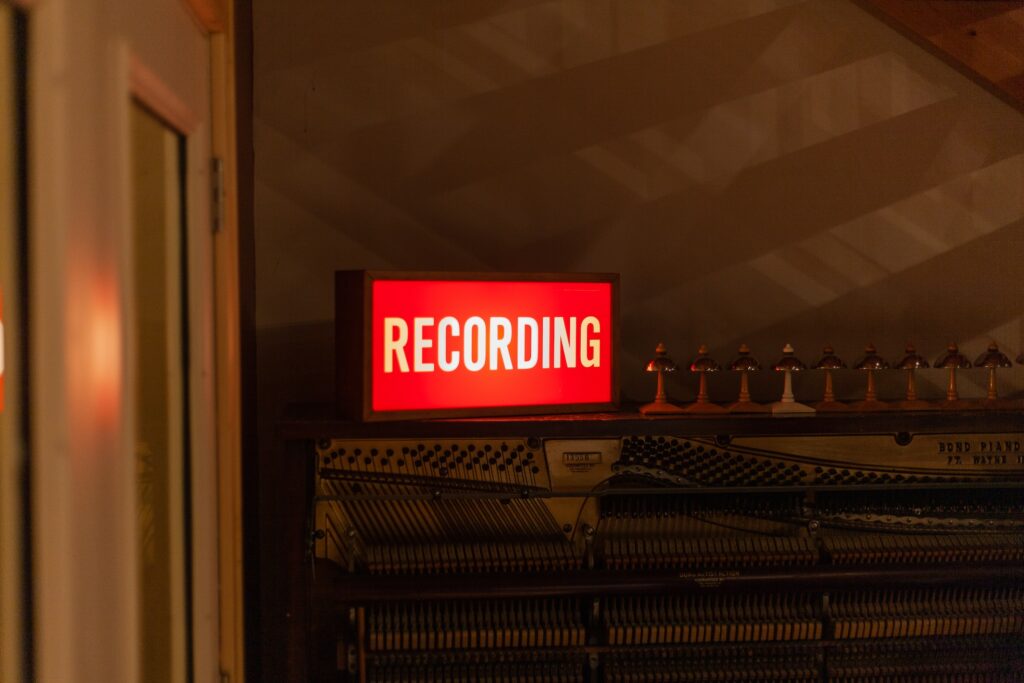In this article, Oliver Eskling-Hansen, who is MSc.IT from ITU CPH, investigates how NFTs and blockchain technology are developing in the music industry. The article is an extract of a master thesis on how NFTs can be used in the music industry.
How do NFTs create new possibilities for copyright management and content exclusivity? And how is NFTs as a feature of the blockchain technology impacting – perhaps disrupting – the music industry?
The music industry has been criticised for its economically unsustainable blockbuster-like economy. Lower barriers of entry with streaming has meant that many more have access to the market, but at the same time, increased competition amongst niche artists. Getting singles on playlists is the new way to the blockbuster mainstream. Streaming and more complex consumption patterns compared to buying a CD has also meant an increased dependency on copyright management, which is still a big struggle for artists, publishers and distributors.
The complex revenue generation from streaming means that concerts and merchandise is still an important generation of revenue. Still, merchandise mainly exists in the physical realm as t-shirts or LPs, but with NFTs and artificial scarcity now also digitally.

How NFTs might be used to change the music industry
NFTs create new possibilities for content and copyright management for artists. By utilising NFTs, artists can decide on content and royalty rates themselves without being dictated by record labels or publishers. Artists can even use the nifty license, a template similar to the legally accepted creative commons licensing, which enables artists to determine their products’ copyrights.
Established artists such as Kings of Leon and others have, through NFTs, sold exclusive album versions, unique digital artworks and lifetime concert tickets for large amounts of money. But it takes a huge name and promotion team to create the awareness and artist branding that generate such money. Lesser-known artists may not be able to generate the same amounts of money on NFTs, and selling of rights, in the same way, could be risky for niche artists if it includes copyrights of their music. This shows that NFTs do not introduce a change in the economic situation between artists, namely that blockbusters stand to gain even more in revenue.
The other aspect of possibilities with NFTs includes the generation of unique and exclusive content catering to the most dedicated fans. Multiple music NFT reports show that user engagement has huge potential with NFTs, both recognised by the music and NFT community. Several platforms dedicated to music content are already being created, such as Hypery and Beatoken in a Danish context. The objective is ultimately to distribute exclusive content from artists to fans, creating a more direct and intimate relationship between artists and fans.
Obstacles to NFT adoption in the music industry
Though it is “free” for all to distribute content on a blockchain, the convenient way for artists to distribute their content is through platforms such as the above-mentioned. Though artists are promised to be able to decide content and fees themselves with NFTs, platforms are the ultimate gatekeepers which can decide the limits to how the artist can collect royalties and distribute rights. Platforms also can set limits to which kind of content they will allow on their platform.
Also, KYC has to be considered as many regulatory requirements are to be met for platforms to perform legally and comply with regulations that might interfere with the usage of NFTs.

Regulatory hurdles and copyrights of music and NFTs
For European platforms to be accountable for legitimate usage of the technology, they must comply with legislations from the EU and local regulation. Existing regulations are interpreted in new use cases, and blockchain-specific regulations are still developing with the adoption of the technology. Platforms are therefore controlling gatekeepers, which allow certain use of NFTs by, for example, deciding smart-contract structures or providing templates for how the musician can issue NFTs. The platform’s control, combined with the fact that platforms also provide distribution of the content, can, over time, become equal to how streaming platforms form monopolistic tendencies in the music industry.
The power structures in the music industry are significantly revolving around copyright
management. Streaming services have radically influenced the music industry by increasing the need for copyrights management, which is problematised by unstructured and bad metadata.
This has meant that performance rights organisations, record labels and publishers have been forced to adapt copyright management practices to the new structures of the music industry characterised by streaming.
The new demand for copyrights management has led streaming platforms like YouTube to provide copyright management themselves, for example, with Content ID, which circumvents the function of performance rights organisations and thereby retrieves negotiation power from artists.
This means that music artists must be extremely mindful of how they put their music rights for sale. A meaningful way for artists to stay in control in the industry and not fall under the reign of platforms could be through artist-governed platforms or maybe through decentralised autonomous organisations (DAOs).
Blockchain is a new technology and will not change anything by itself. If the blockbuster economy of the music industry is to change, blockchain and NFTs can be a tool to shake up and disrupt the power structures. NFTs introduce the enactment of scarcity but copyright management still relies on the accountability of institutions in the form of performance rights organisations and the technological governance of platforms.
NFTs have thus encouraged a whole new understanding of artistic expressivity and exclusivity, and for music artists, it has introduced new possibilities for fan engagement and revenue which we are yet to see more of in the future.
Read other stories: The Token RegRadar Interview Series – Episode 5
Sygnum looks to future and launches NFT issuance, consulting and custody


